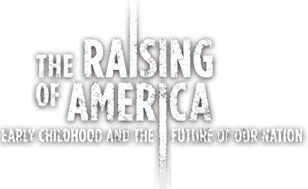Adversity in Your Environment
to watch purchased videos
Add to Your Favorites
Remove from Your Favorites
Clip Transcript
NARRATOR: In the mid-90’s, doctors Vincent Felitti and Robert Anda published groundbreaking research, assessing the links between childhood adversity and adult health and well-being. In the original Adverse Childhood Experiences Study, known as the ACE Study, 17,000 mostly white, mostly middle class adults were asked about ten different types of childhood adversity:
NAR: When you were a child, were you physically or psychologically abused by parents? Did you live with someone who abused drugs? Were you neglected? Was there domestic violence? Did anyone go to prison? Was someone in your home mentally ill?
NAR: Respondents were assigned one ACE for each of the ten types of adversity experienced. Surprisingly more than one in five of this mostly middle class population reported three or more ACEs. But even more eye-opening was the correlation between between childhood adversity and adult mental and physical health.
Sandra Bloom, Associate Professor, Drexel University School of Public Health :
The higher the ACE score, the more likely people were to suffer from things like heart disease, liver disease, lung disease, depression, suicide, I-V drug abuse and alcoholism. What it said was, we’ve got a common causality for all of our major health and social problems, and it was all related to what had happened to them as children.
NAR: But researchers like Dr. Roy Wade could see the ACE Study didn’t take into account economic distress let alone hunger, housing insecurity and other hardships in low-income neighborhoods.
Roy Wade, MD, Department of General Pediatrics, Children’s Hospital of Philadelphia:
When I came to Philadelphia and I saw the huge amount of blight, the community violence, the episodes of racism and discrimination – those are stressors, too.
NAR: When Philadelphia researchers expanded the ACE survey to add questions about racism, neighborhood safety and violence outside the home, they discovered that while 14% of the general population reported four or more ACEs, in Philadelphia that number was a startling 37%.
Roy Wade:
Poverty is an adverse childhood experience that gets under your skin. Living in economic distress can actually translate into long-term negative health outcomes even for the most resilient individuals.


